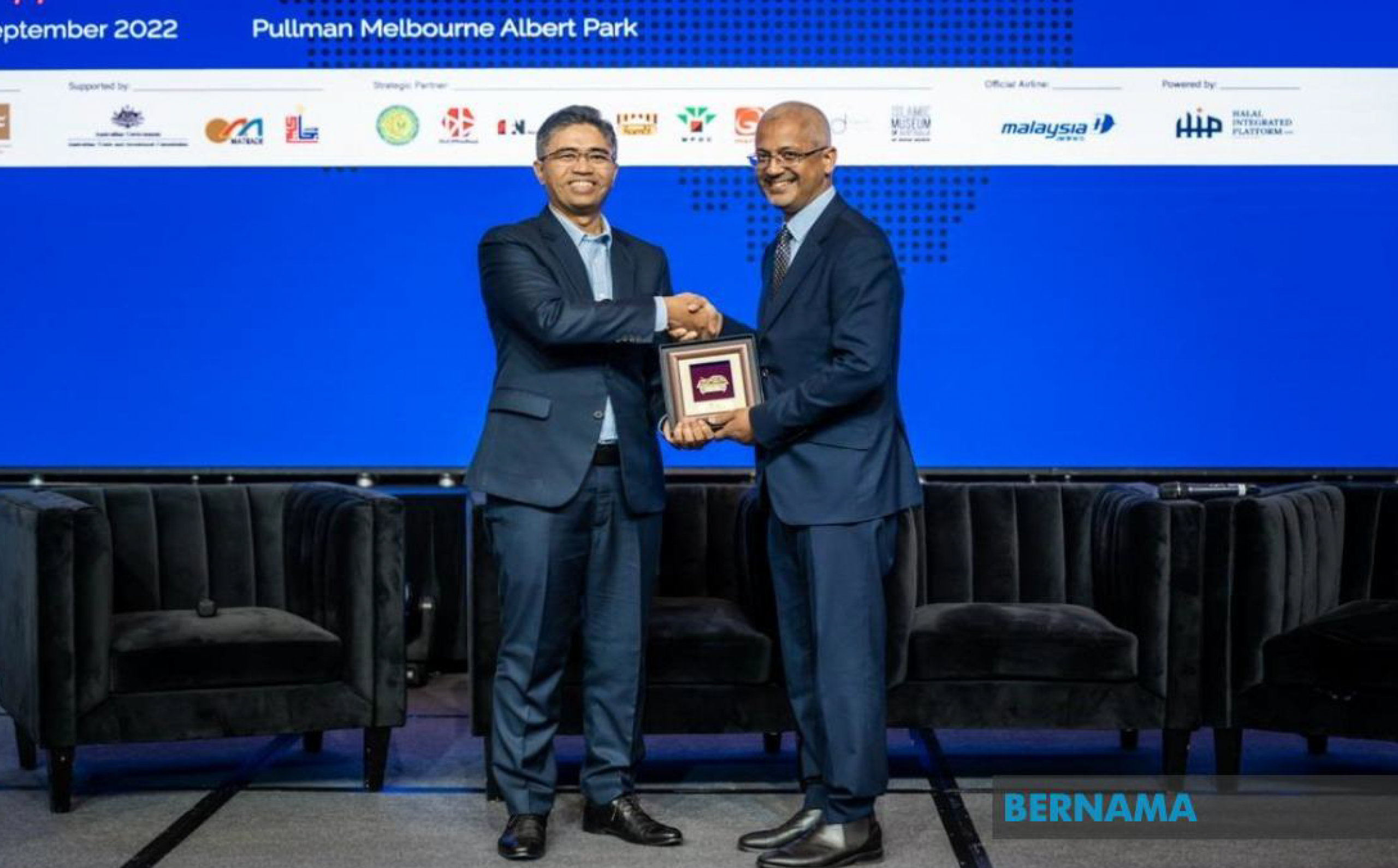MELBOURNE, Sept 4 (Bernama) — The World Halal Business Conference Circuit 2022 (WHBCC), which just concluded its maiden visit to Australia had focused on improvising Malaysia’s halal ingredients segment to protect the industry from supply chain disruptions amid global uncertainties, said Halal Development Corporation (HDC).
Chief executive ocer Hairol Ariffein Sahari said all ingredients used by Malaysia’s halal product manufacturers must be certied by a recognised halal certication body, hence, the halal supply chain has potential to expand widely.
“Malaysia should diversify its halal market including the supply chain proposition. It was evident the last two years during the peak of COVID-19 pandemic that we had food security issues globally as countries resorted to protectionism.
“They didn’t want to export their goods. On the other hand, we are a net importer of food (including halal food), halal ingredients and non-food products. So, there is a need to diversify our supply chain,” he told Bernama on Friday at the end of the two-day WHBCC in Australia.
Global halal demand and supply
The halal food market is blooming worldwide and it is no longer the sole domain of Muslims as it appeals even to non-Muslims as they seek sustainable and healthy food supplies.
The trend on the spending of halal food has increased by 6.9 per cent in 2021 to US$1.27 trillion from US$1.19 trillion in 2020, and is expected to grow by 7.0 per cent in 2022 to reach US$1.67 trillion in 2025.
The global Muslim market could grow to US$5 trillion by 2030 if the trend continues. Hence, Hairol said Malaysia should take the opportunity from the fast-growing halal market, and as one of the halal industry players, Malaysia should expand into untapped markets like Mongolia.
“Six weeks ago, I was in Mongolia. They have 70 million livestock and that livestock will reproduce another 24 million annually, but the human population in Mongolia is just 3 million.
“They can be a net exporter of meat and meat products, but in Mongolia, they don’t have halal supply chain facilities with Malaysia. So, we as a country with experience in the halal supply chain and trade, should work with them to leverage on each other’s strength,” he said.
He explained that the global halal industry market size is currently worth US$3.1 trillion but the industry could only accommodate 20 per cent of the demand.
“It’s a huge gap between demand and supply. I’m ready to compete if the market share left is 10-15 per cent but now, the market gap is 80 per cent. So, we shouldn’t compete, we should cooperate to ll up the market gap.”
“This is the gist of WHBCC 2022. All about internationalising our halal agenda and to create value together (with Australia) as well as trying to capture as much as trade and investment opportunities by growing the halal market,” he said.
WHBCC to go to UK in 2023
The WHBCC is making its round for the rst time outside Malaysia – in Australia from Sept 1-2 through partnership between HDC and the Australian Trade and Investment Commission (Austrade).
“We are working very hard to promote halal knowledge and values through the conference,” Hairol said.
He noted that to date, Australia has 25 halal certication bodies but only seven certication bodies were recognised by the Department of Islamic Development Malaysia (JAKIM).
This year’s conference closed its curtains with notable conclusions. One of which is the provision of The Islamic Coordinating Council of Victoria’s (ICCV) job placement for 200 halal-skilled and professional talents under HDC’s Halal Apprentice Program to be groomed and exported to Australia in collaboration with Malacca Industrial Skills Development and Entrepreneurship Centre (Misdec).
Secondly, a potential partnership between Halal Integrated Platform (HIP), JAKIM, Sabah State Government, ICCV and the Department of Agriculture, Fisheries and Forestry (DAFF) is set to add value to the existing Malaysia-Australia halal governance framework, addressing the halal certication and misconception issue.
HDC also announced that the State of Selangor through its agency Halal International Selangor (HIS) will set up a strategic collaboration with the Victoria Government towards Investment Opportunity at Selangor Halal Economic Zone on current and future development planning, valued at RM10 billion.
Meanwhile, the halal industry forum organised by the HDC will be expanding its reach to the United Kingdom next year after the success of WHBC Australia edition.
Source : BERNAMA


